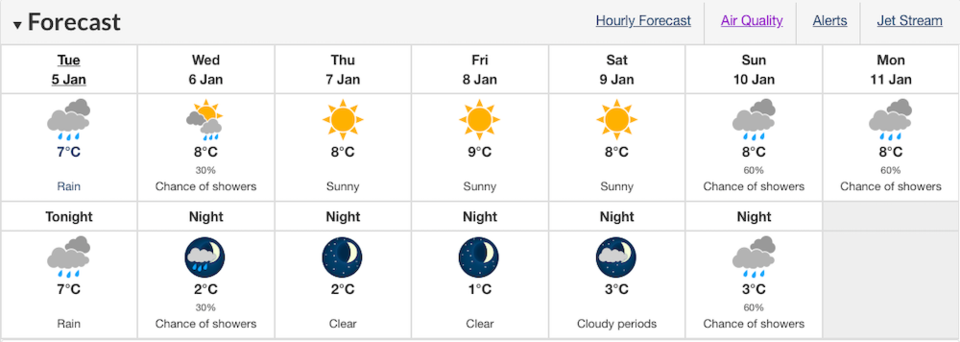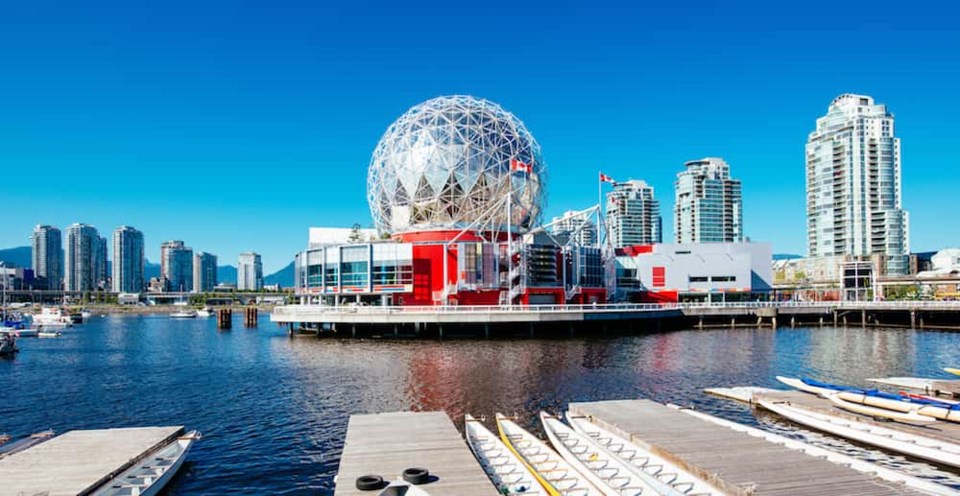While it wouldn't be wise to put your umbrella away just yet, it looks like sunshine is returning to the Lower Mainland this week.
After a long dreary spell, the Metro Vancouver weather forecast calls for three straight days of sunshine heading into the weekend.
Starting on Tuesday, Jan. 5, Environment Canada calls for rainfall amounts up to 20 mm during the day followed by another 20 mm at night. Additionally, the region is expected to see wind up to 30 km/h except for 60 km/h near the water. Following this, Wednesday is expected to see a 30 per cent chance of showers throughout the day.
Starting on Thursday, however, Vancouverites should be able to break out their sunglasses for at least three days, with the forecast calling for bright sunshine until Saturday. That said, the evenings will be quite cool, with overnight lows dipping down between 1°C and 3°C.
Unfortunately, the rainfall is expected to return Sunday, and carry on through Monday.
Metro Vancouver Weather Forecast
 Photo via Environment Canada
Photo via Environment Canada La Niña Winter
The Canadian Government defines La Niña as "the appearance of cooler than normal waters in the eastern and central Pacific Ocean"—A.K.A. the waters off B.C.'s coast. Sometimes also referred to as "a cold event", the climate pattern is generally considered to be the opposite of El Niño, and is usually great news for skiers and snowboarders hoping for a season full of champagne powder.
"This year we have entered into a linear pattern and it's almost 100% going to stick around for December, January, and February--and beyond. It's a moderate to strong La Niña and with that, what we call a teleconnection is when it's going to actually impact us here in B.C.," says Castellan.
While La Niña was identified back in August, it didn't have a significant bearing on local weather at that time. But mid to late December onward, B.C. will likely see colder than normal temperatures, with a much higher level of certainty than Environment Canada will normally give for seasonal projections, Castellan explains. After that, the pattern is expected to continue into spring.
Read more here.
--With a file from Megan Lalonde.



